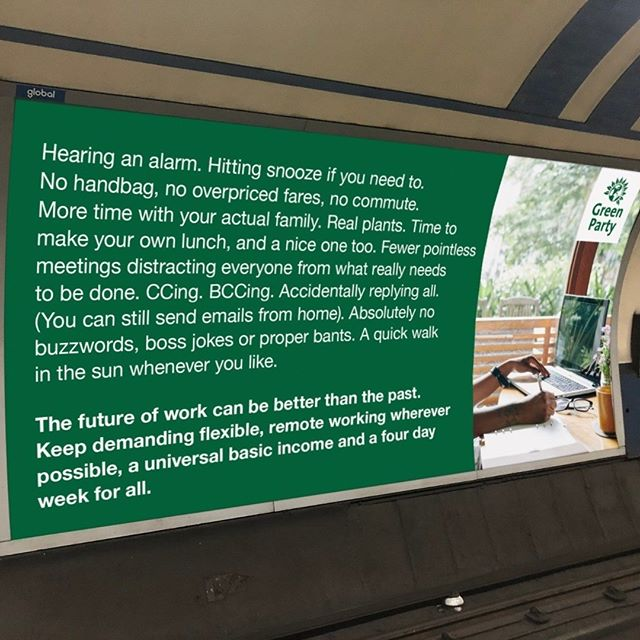I think universal basic services would be better because that can’t be gamed by adjusting prices. Things like food, housing, healthcare, and education should be provided unconditionally.
I like universal service too. Is there a good read that discusses how it would work with food and housing? Both sectors are currently very much profit looking, so I’d be curious to learn how they would be transformed.
European social policies from the post wars were very much structured around providing services.
Even the highly conditional basic income that some states provide is abused by large companies to push down wages and not even pay living wages.
So IMHO while there are some good ideas behind UBI, Capitalism will find a way to turn it into the opposite of what the rather naive proponents of it hope… and I find it rather telling that some of the large lobbyists for UBI are well funded capitalists running businesses that would be able to push down wages that way.
It seems to me like a short-sighted way to counter a bit of the visible damage capitalism does. Much like most well-intentioned liberal reform, it starts from the position that capitalism is a fundamental force of the universe that must be worked around rather than one system of many which can be replaced.
That said, I’d be immensely glad to have it. I’m someone who likely will never be able to work in a meaningful capacity, and would benefit from money to not die.
It’s a liberal perspective on fixing inequalities.
See, instead of envisioning a system where policies are devised at a societal level in order to tackles our needs, it imagines poorness and inequalities as an issue related to purchasing power.
That thinking might build up perverse effect.
Imagine a scenario :
I’m walking 10km everyday to work in the city, and so does my whole village.
The universal basic income (ubi) allows me to buy and maintain really good running shoes. One neighbor can even afford a bike.
In another configuration the city could have dedicated part of its budget implementing public transportation.
The ubi at its core assume that individuals are the key unit, coupled with the whole neo liberal ideology that the “egoistic action of an individual benefit society at large”. One might sees why this idea is getting traction at the moment. It’s an idea that relies on the belief that the “market” will provides for our need. The ubi subsume political process and action by the market.
I think a UBI can sit in parallel with other initiatives. For instance you can have universal healthcare and education, while still having UBI.
I also think that just because an idea can be perverted, it doesn’t mean that it has to be that way or that there are no positive sides to it.
I’m critical of UBI as a single, silver bullet. However, I do think that there is potential for it to play a role in creating more just societies.
Often proponents of UBI say that to finance it one can replace the inefficient provision of other social services, so having both is usually not the argument.
I think what most people fail to understand is that the very basis of our current economic system is to incentivize people to find exploits (see all the talk about “disruptors” and so on). And it is an unhealthy co-dependent relationship with the bureaucratic regulators, who to a large extend justify their existence on curbing the worst excesses of these exploits.
Not an expert in the topic at all, but I believe that in the UBI trials that were run (in Europe?) still had the public healthcare and education system available.
I think UBI can support and make easier some form of social welfare. For instance, in the country I’m living at the moment, it has been made really difficult for people who have to rely on social welfare to access it. A variety of gates have been created in order to ensure that an applicant “really needs” access.
I believe that UBI would be a much more dignified way of delivering social welfare. However I’m thinking about it really as a progressive tax that starts in the negative and then increases with income, which might be different to what others mean by this.
Don’t disagree with your comment regarding the incentives in the current economic setup… however I believe that at the current stage the regulators rather aim to protect the excesses rather than trying to curb them.
I realise that I’m an idealist, but I start from the perspective of basic human rights : Everyone has the right to food, clothing, housing, warmth, etc. Surely our world’s managers, by agreeing to be a part of the UN, have a duty to the UN’s convention on human rights?
But what’s the cost of all that?
And does the administration bill from giving to some and not all outweigh just giving a payment to everybody?
And would the resulting inflation make it all impossible anyway?
I don’t know the answer to any of this : I’m not an economist.
UBI must have a profound affect on the economy though…
It is a noble idea. We need to put more thoughts on it and see if any countries or states are already implementing something similar.
A universal Basic Income would either drive people lazy or way too poor if it is miscalculated.
For example 400 € is more than the guaranteed minimal salary in Morocco, so one can live with it. However, in Europe this would be two to three times less than the guaranteed minimal salary.
Sounds good to me although if I got paid $15 an hour and lived in California where things are much more expensive than for example Kentucky, there would be huge incentive for me and many others to leave expensive cities and states. This would destabilize them, as many lower paid people would leave, creating an absence of lower paid workers. I think it should be proportional to the average cost of living. Feel free to prove me wrong though, I’m completely open-minded to everyone’s thoughts.
creating an absence of lower paid workers.
So they’ll have to pay more or lower the cost of living. Both wouldn’t be bad imo.
True. My logic seems broken lol
Universal Basic Worker Control of Industy
An UBI would have to be financed by taking the money directly from businesses since otherwise they would abuse it. If it’s their money they will lower wages, but it would only really negatively affect people that already have a high income. Companys would have to to pay for peoples lives regardless of if they actually employ them which seems more appropriate for the 21. century where you can, in theory, have an online shop without any employees.
Directly organizing free food, housing, infrastructure etc. would maybe have less overhead but also be less flexible.
But if I learned something from software development it’s that if you constantly have to patch weird edge cases of your system then it was probably a bad design to begin with…
Labour is piloting this in Waleshttps://www.theguardian.com/society/2021/may/14/wales-to-launch-universal-basic-income-pilot-scheme
The UBI is a huge unnecessary expense in developed countries and an impossibility in developing countries. It is a terrible idea, especially if the aim is to have quality public services. In addition, it can discourage active job search and/or the inability to hire someone. On top of that, the market would simply adapt to this measure by raising prices.
To get out of poverty, stop drowning people in taxes, allow a wide contractual freedom and above all, eliminate the privileges of some oligopolies by completely withdrawing patents (like closed source software) and eliminating millionaire subsidies. In this way, the playing field is balanced by introducing more competition and allowing wages to rise where they need to rise.








